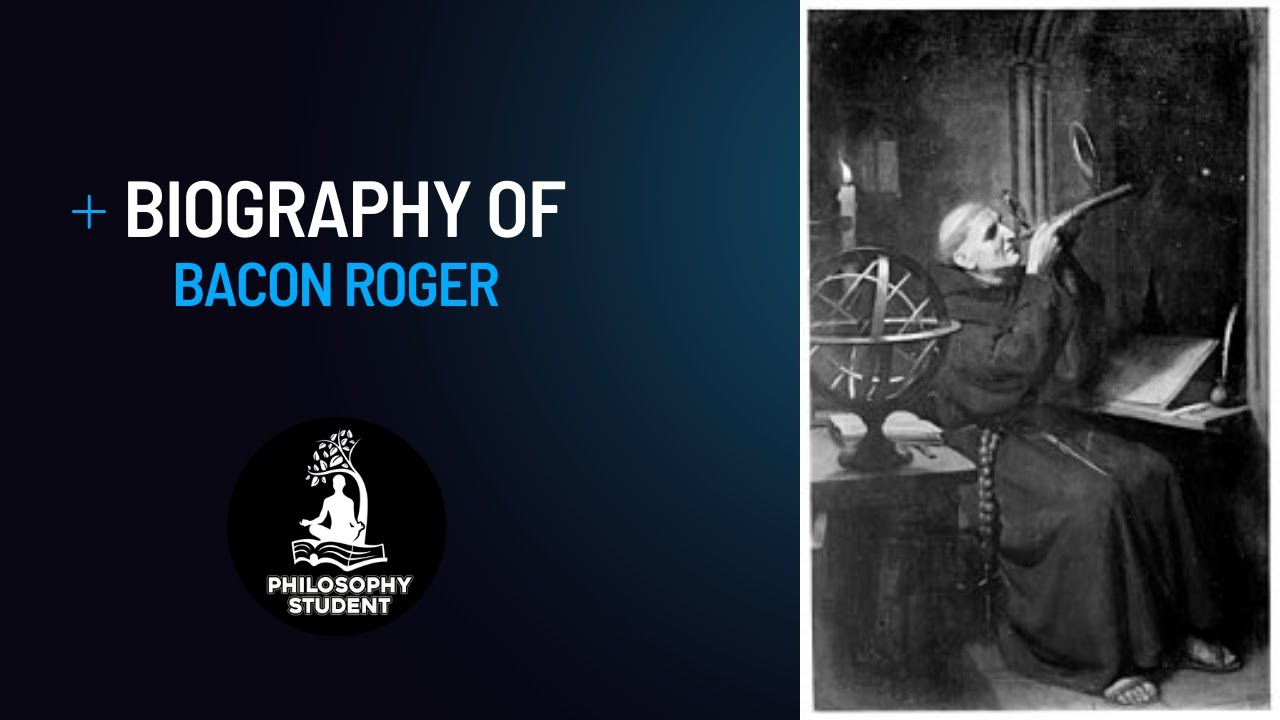Roger Bacon was a major medieval commentator on Aristotle and, as a professor at the universities of Paris and Oxford, he taught Aristotle’s works concerning both natural philosophy and metaphysics. In an era dominated by Neoplatonism, with its emphasis on a priori deductive reasoning from received theories, Bacon emphasized a posteriori inductive reasoning based on the empirical study of nature. His contributions to natural philosophy look ahead to the elevation of science and the scientific method some five hundred years in the future.
Bacon was born at Ilchester, Somerset, England, about 1219 or 1220, the child of a family of some wealth. He studied at Oxford and became a master there, lecturing on Aristotle. In 1237 or sometime thereafter, he taught at the University of Paris, lecturing chiefly on Latin grammar, Aristotelian logic, arithmetic, geometry, and the mathematics of astronomy and music. He left Paris about 1247 and became an independent scholar, although he may have lived mostly in or near Oxford.
He took holy orders, becoming a Franciscan friar in 1256 or 1257, either in Paris or Oxford. He struggled under the yoke of Franciscan discipline until he was able to obtain a commission from Pope Clement IV in 1266 to produced “writings and remedies for current conditions.” As Bacon interpreted it, this amounted to an invitation to depart from engaging in disputes over the texts of Aristotle and to instead survey the state of current learning and apply Aristotelian logic and science to it with the objective of creating a new theology. Clement’s commission resulted in Bacon’s masterwork, the Opus Majus, completed in 1267, and consisting of seven parts:
Part One: “The Four General Causes of Human Ignorance” ponders the impediments to truth and wisdom. Bacon discerns four causes of error: following an unreliable authority; slavishly adhering to custom; heeding the ignorance of others; and attempting to conceal one’s own ignorance with specious knowledge.
Part Two: “The Affinity of Philosophy with Theology” explores the relationship between philosophy and theology, reaching the conclusion that scripturally grounded theology is the foundation of philosophy and all its branches.
Part Three: “On the Usefulness of Grammar” follows from the elevation of holy scripture in Part Two, concluding that language and grammar are essential to understanding scriptural truth and are therefore foundational to all manner of knowledge. Bacon’s earlier work on grammar hints at the possibility of creating a universal grammar applicable across many languages.
Part Four: “The Usefulness of Mathematics in Physics” is most notable for its application to the reformation of the Julian Calendar then in use.
Part Five: “On the Science of Perspective” is a treatise on optics and visual perception, based largely on Arab writers.
Part Six: “On Experimental Knowledge” is a study of empirically based natural philosophy (science) with an emphasis on alchemy (including its occult aspects), astronomy, and the manufacture of gunpowder.
Part Seven “A Philosophy of Morality” is a study of moral philosophy and ethics. The Opus Majus was followed by the Opus Minus, an abstract of the larger work, and the Opus Tertium, which was intended to introduce both the Minus and the Majus. Together, the works were meant to serve both as a justification for and outline of a reformed approach to theology and the education of theologians, which, Bacon argued, should include a thorough indoctrination into natural philosophy.
The death of Pope Clement in 1268 left Bacon without a sponsor and, more important, without a protector. When the Church handed down the Condemnations of 1277, which banned the teaching of several philosophical doctrines, Bacon was arrested and either held under house detention or cast into prison. Released sometime after 1278, he returned to Oxford and the Franciscan House there, where he continued to study and write.
The Compendium Studii Theologiae, his final known work, was completed in 1292. He may have died later that year or as much as two years later and was presumably interred at Oxford.




































